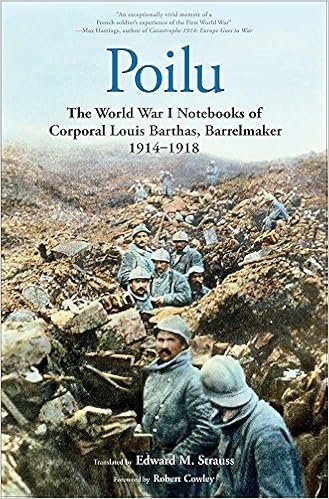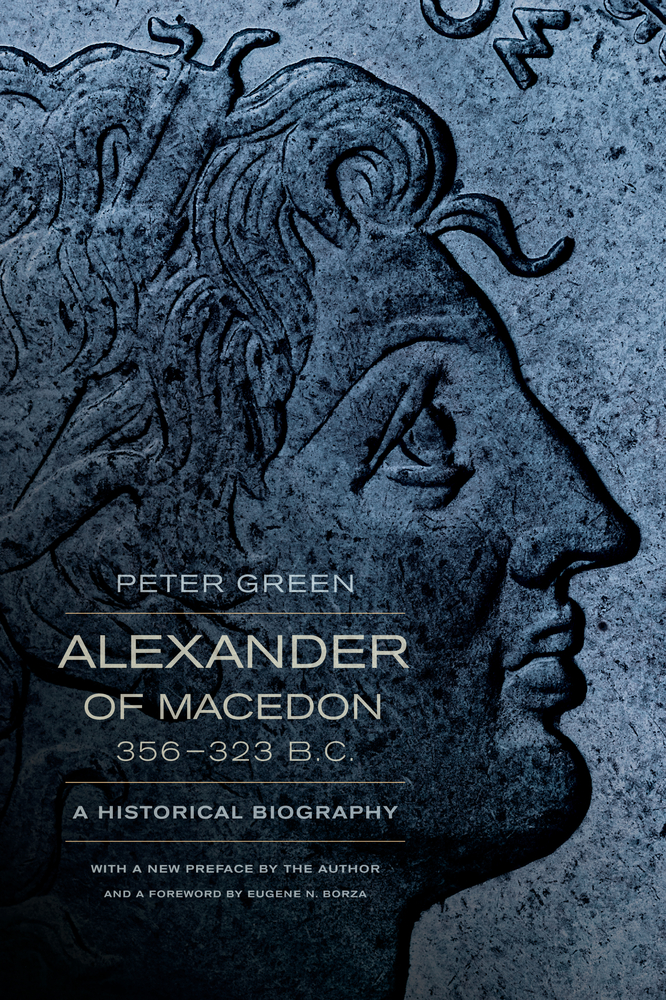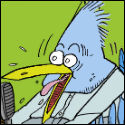|
For anyone who liked Junger's "Storm of Steel" but was a bit alienated by the cool nature of the narration, I highly recommend this little gem: It's obviously hard to know how much that's different between the original and the English translation, but Barthas gives a vivid description of his experiences, and he isn't afraid to show his disdain for the French high command and the war as a whole. Barthas missed out on the more fluid phases of the war (fall of 1914 and the second half of 1918) so if you want a witnessreport from the Marne, I'm sorry to say that Barthas can't help you with that. But it is, in any case, a very interesting read.
|
|
|
|

|
| # ¿ May 15, 2024 04:33 |
|
I just finished "Alexander of Macedon", by Peter Green, and thought it's worthy of a note. It's a comprehensive description of the hectic career of Alexander, all the way from his upbringing under Philip to his sudden and perplexing demise in Babylon. Green has quite the dramatic flair to his writing, but never leaves the realm of academic research; any and all opinions that may differ from other historians are well-argued. The most notable of these would be the appendix at the end of the book, entitled "Appendix: Propaganda at the Granicus". Here Green argues (quite convincingly) that the established chain of events during the battle of Granicus are the product of Alexander's efficient propaganda machine. Green makes a strong case, but he also acknowledge that it is but a theory, and nothing more. The entire book is a great read. Apart from the description of Alexander's life, we get a detailed first chapter about his father Philip and his founding of the greater Greek-Macedonian "alliance", and towards the end of the book, Green goes into great detail about the views of Alexander's coducts that historians has entertained throughout the years. Green himself seems to have mixed feelings; while Alexander was a military leader of few equals, his statesmanship was sub-par at best, and Green depicts him as tyrranical and manipulative. It's a very good book and very well researched. Highly recommend it.
|
|
|
|
On the subject of ancient Rome, I highly suggest any book on the subject penned by Adrian Goldsworthy. Easy to read, but comprehensive. I particularly liked his book about the decline of the Western Empire:
|
|
|
|
MeatwadIsGod posted:I've been thinking about picking up In the Name of Rome since I loved his Caesar biographies so much. Have you read that one? Afraid not, I read his books on Caesar and Augustus which are quite excellent, and the above mentioned one of course. I also bought "Pax Romana" during my last visit to NYC (We have a pretty lousy market for history books in Sweden) but I haven't really touched it yet.
|
|
|
|
For anyone interested in WWI, I feel this book is a must: It's by Swedish author Peter Englund, who's at the Nobel Prize Academy, and noted Swedish historian. This book is basically a collection of diary notes from the Great War, from all kind of people; there's Willy Coppens, famous fighter ace for the Belgian Airforce; Alfred Pollard, infantryman in the BEF; Michel Corday, a French stateman; Kresten Andersen, a Dane volunteer in the German army, and a whole bunch of other souls who one way or the other was affected by the war. Some will die along the way, which makes it all the more painful when you remember that these men and women were all real. They had dreams, hopes, plans for the future, and they share this with us, a hundred years later, through the excellent compilation work by Englund. While it's chiefly concerned with "micro"history (i.e. the smaller scale), Englund includes very informative footnotes when it's called for, and many of these contain some very obscure, but relevant information that I think even the most die hard WWI historian would be surprised to read about. In all fairness, I've only read this book in Swedish, so I can't comment on the English translation, but hopefully it does the job. I would also like to point out that if you are Swedish, or can read Swedish, then there's an even better deal out there: namely, the same book, but extended over 5 volumes (of which the last will be published next year) that adds more lifestories, and fleshes out each war year. So book one is 1914, next comes 1915, etc. I can't seem to find these extra volumes in English, which is a shame, because having read the Swedish ones, I can safely say that they are worthwile to get, even if you have the original.
|
|
|
|
fridge corn posted:Does it have anything to say from the millions of Asian and African soldiers who died fighting for their colonial overlords? It does include an account of a British soldier fighting the Germans in German East Africa. Englund is not the type of historian who tries to keep a neutral tone in his writing, and his description of the treatment of Africans does not try to shrug away any wrongdoings. But texts from colonial troops themselves? No, I’m sorry to say that in this, the book lacks. It does touch on one of the grimmer aspects of the war though. Through the eyes of Rafael de Nogales (who I best can describe as a man with a never ending thirst for warglory) we get some disturbing descriptions of the Armenian genocide of 1915. de Nogales was an Argentinian who volunteered in the ottoman army (after trying with Belgium and a list of other entente-nations; clearly he didn’t really care for whom he fought) and saw firsthand the treatment of Armenians and other minorities by the ottoman army. I should’ve been clearer that this is not a book that is solely focused on the western front; the Italian alps, the eastern front, Serbia, Mesopotamia, it’s all there. The first volume of the extended series adds a German sailor on a merchant-hunter in the Far East, but that is as close we really get to that little corner of the warring world. Also remember that the basis for this book, the very structure, is dependent on notes from the war participants themselves. I am unaware of any published works from colonial veterans, but would obviously be very interested if any was available in English or Swedish!
|
|
|
|
I thought I'd do a short write up on a book I'm currently reading. "Marked for Death - The First War in the Air" by James Hamilton-Paterson is a thorough study in this first truly great air war in human history (we tend to not count the improvised bombing raids raids during the First Balkan War of 1912). Hamilton decides not to do the regular historical schtick though; instead of going through the war from start to finish, he adresses different aspects of it in thematic chapters. So there'll be one chapter regarding the different air forces stance on pilot training ("what training?" the early RFC seemed to think) and another chapter revolved around the slow realisation that standardisation and streamlining was needed regarding airplane construction. Hamilton jumps back and forth in time with these issues, with plenty of quotes from pilots of the days, some of them quite famous, such as Cecil Lewis (who went on to start up this little thing called the British Broadcasting Company), who ran away from school to enlist as a 16-year old. There's also plenty of material taken from W.E. Johns, who ended up writing the Biggles series of books, of which I clearly 100% know nothing about at all I swear. I should note that while he does touch upon both sides of the air war, most of his sources seem to be British. So if you're the WWI equivelant of a Wheraboo I guess you won't be happy. It's very interesting so far! I've only reached about halfway through the book but I look forward to read more from it. 
|
|
|
|
Minenfeld! posted:Are there any good books out there about combat aviation and pilots during the first world war? My grandparents gave me a copy of The Canvas Falcons when I was 6 and between that and playing Red Baron I was in heaven that summer. I was thinking of rereading it, but apparently it's an awful, ahistorical work. Any suggestions? I refer you back to my post at the very end of page 62 in this thread, in which I talk about "Marked for Death".
|
|
|
|
I picked up Lost Christianities and it's extremely my poo poo, so thanks to those that mentioned it in this thread! I've recently picked up a fascination about the historical development of geographical maps, so if anyone has a "must read" about such things, then feel free to point me in that direction.
|
|
|
|
OctaMurk posted:They discounted the possibility entirely, because Korea "isnt tank country", iirc “The Ardennes isn’t tank country” -the French, 1939.
|
|
|
|
Stumbled over a war diary of a Lancaster pilot which might be interesting for those who hasn't seen it: http://www.lancasterdiary.net/index.php
|
|
|
|
Pick posted:The Great Mortality is a book I like about the Black Death, very readable and covers the disease in a broad way. I picked it up on my E-reader and loving it so far.
|
|
|
|
So I finished "The Great Mortality" which was an excellent read. Much grateful for this thread for pointing it out. It got me in the mood for some deeper dives into Medieval history (European mostly), and if anyone has any interesting pointers to give me, I'd be all the happier for it!
|
|
|
|
FMguru posted:Medieval Europe by Chris Wickham is a good, up-to-date primer on the era (and you follow it up with his prequel The Inheritance of Rome) Oh hell yeah, I love to read about the “Dark” age, thanks a lot!
|
|
|
|
I should make an effort post soon about my latest reading endeavors but for now I will simply add that Robin Lane Fox’s biography of Alexander the Great was very enjoyable.
|
|
|
|
Vasukhani posted:Robin Lane Fox plays one of the companion cav, in exchange for letting stone use and abuse him as a historical consultant If I remember correctly, that movie was pretty bad but surprisingly accurate to history in a lot of ways?
|
|
|
|
Any pointers for good books about the mongol invasions of Europe and the Middle East?
|
|
|
|
Anfauglir posted:I want you to know I read that as Middle Earth, and now I really want a book about the Mongol invasion of Middle Earth You’ll have to wait forever then, because the Blue Wizards stopped the East from interfering with the War of the Ring.
|
|
|
|
Just about to finish Johannes Fried’s book on Charlemagne. Terrific stuff and very thorough. Quite apart from that, I’m interested in the development of the Hebrew Bible. Anyone has any suggestions?
|
|
|
|
Is there any work in particular about the Arab Revolt (World War I) that I should poke around in?
|
|
|
|
So I've been in a Homeric mood recently and read some books to that effect. First up, a fairly new release, in Robin Lane Fox's Homer and his iliad  Robin Lane Fox is a historian of the ancient world, having written, amongst other works, fine biographies of both Alexander the Great and Augustine of Hippo. He has also written about the ancient Greeks' slow colonial expansion (Traveling Heroes) and a cursory glance at the historicity of the Bible (The Unauthorised Version), good reads all. His latest publication, released in July of this year, is a pleasant excursion to one of ancient history's most enduring question, being the Homeric one: What are the origins of the Iliad? Can we ascribe it to any one person (Homer?) or to a string of different poets? How and when did this timeless epic emerge? Is its origin to be found within ancient Anatolian traditions, or is it the brainchild of some bard entertaining troops on campaign? These and many more are the points of interest that Lane Fox takes us through, but he doesn't stop there: Lane Fox takes us through the Iliad, not as a whole, but highlights themes that he deems particularly moving and elegant. Lane Fox is clearly in love with the Iliad and his book is a delightful love letter to this borderline cliché addition to the human story. Note: The book only touches upon the Odyssey in a very roundabout way: The Iliad is the primary focus. I also recently finished The War That Killed Achilles: The True Story of Homer's Iliad and the Trojan War by Caroline Alexander (2009).  I have not read anything else by Alexander but this relatively short foray into the Iliad is a well-put-together study of the story, with a clearer thesis as to the overarching story at play: Alexander presents an elegant interpretation wherein Achilles is revealed to be far more weary of war and bloodshed than one might have initially assumed. Alexander does not dwell on the complex linguistical history of the Iliad quite as much as Lane Fox's work, and the book is generally less interested in the "Homeric Question". Instead, the Iliad and its characters are front and centre. Alexander is clearly just as enamoured with the epic as Lane Fox, which is quite strikingly underlined in the penultimate chapter of the book, which is simply her translation of the 22nd book of the Iliad in its entirety. For the rest of the epic she will quote and comment in a pleasant, easy to read way, but for what she deems to be a book "too perfect to be fragmented by commentary", she instead lets Homer present on his own (albeit in English) terms, the climatic duel between Achilles and Hector. Both these works made for a delightful visit to the world of the Iliad, with all its perplexities, unanswered questions and moving characterisations. I heartily recommend them both for those who, like me, will never stop marvel at the immortality of Homer.
|
|
|
|
Fighting Trousers posted:The Sleepwalkers will have you screaming at the page in places. It's perfectly titled, because Clark really captures the way all of the eventual combatant nations just shuffled into catastrophe. It's a doorstopper, but it's excellently written. I will second this. I used Sleepwalkers as a source for my WWI Twitter account, and it’s wild the way the European diplomatic channels worked essentially independently of their respective governments a lot of the times. The July Crisis was the perfect storm of insanity. Its description of the events in Sarajevo reads like a Cohen brothers movie at times. Farcical crisis management by the local officials. BigglesSWE fucked around with this message at 13:30 on Apr 28, 2024 |
|
|
|

|
| # ¿ May 15, 2024 04:33 |
|
Cyrano4747 posted:You're more of a historian than Carlin Dunno if Carlin is, but I’m at least technically a historian, and will soon hand in my master thesis in Holocaust studies! So if my historical tales are bullshit they’re at least scholarly bullshit.
|
|
|





